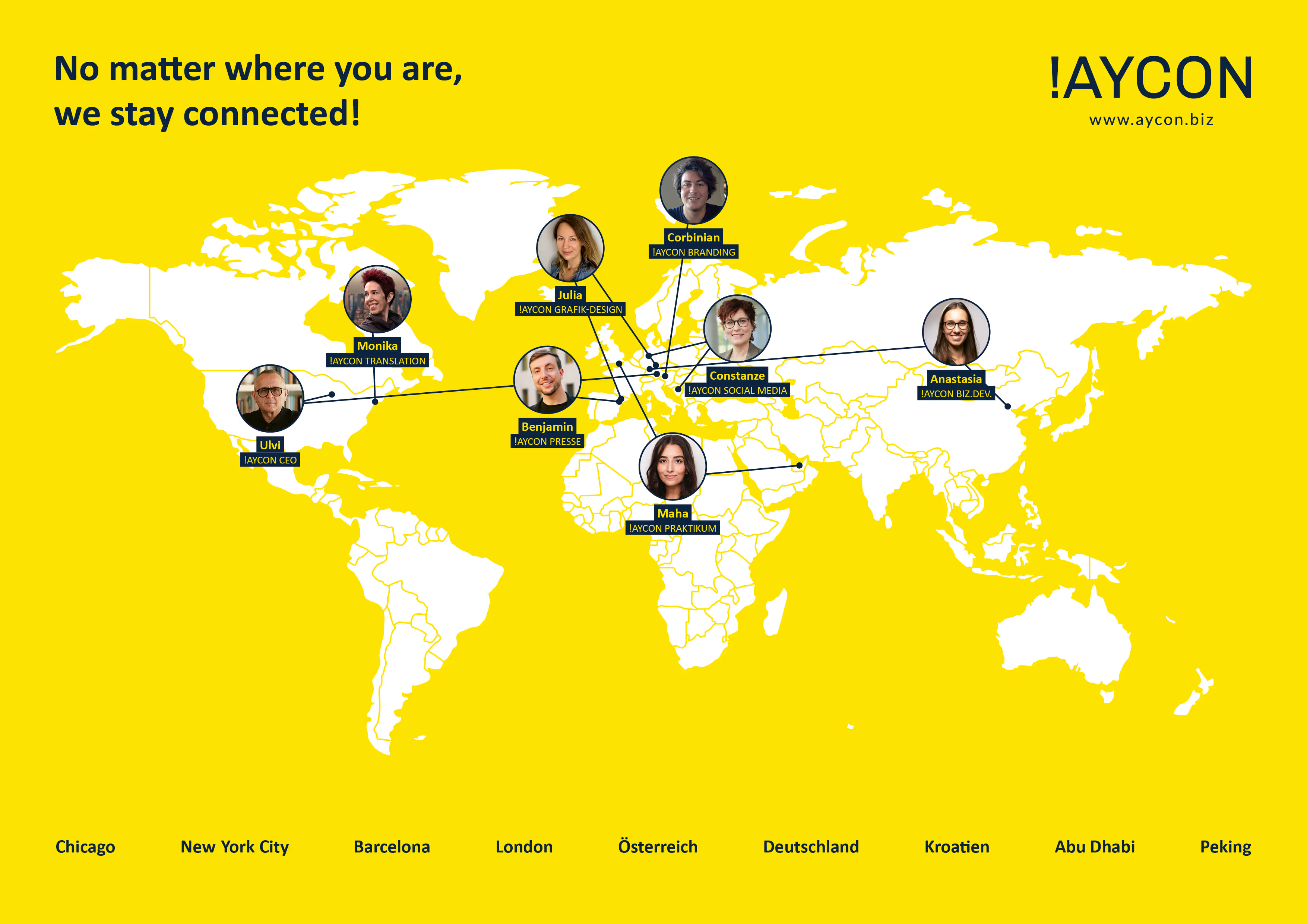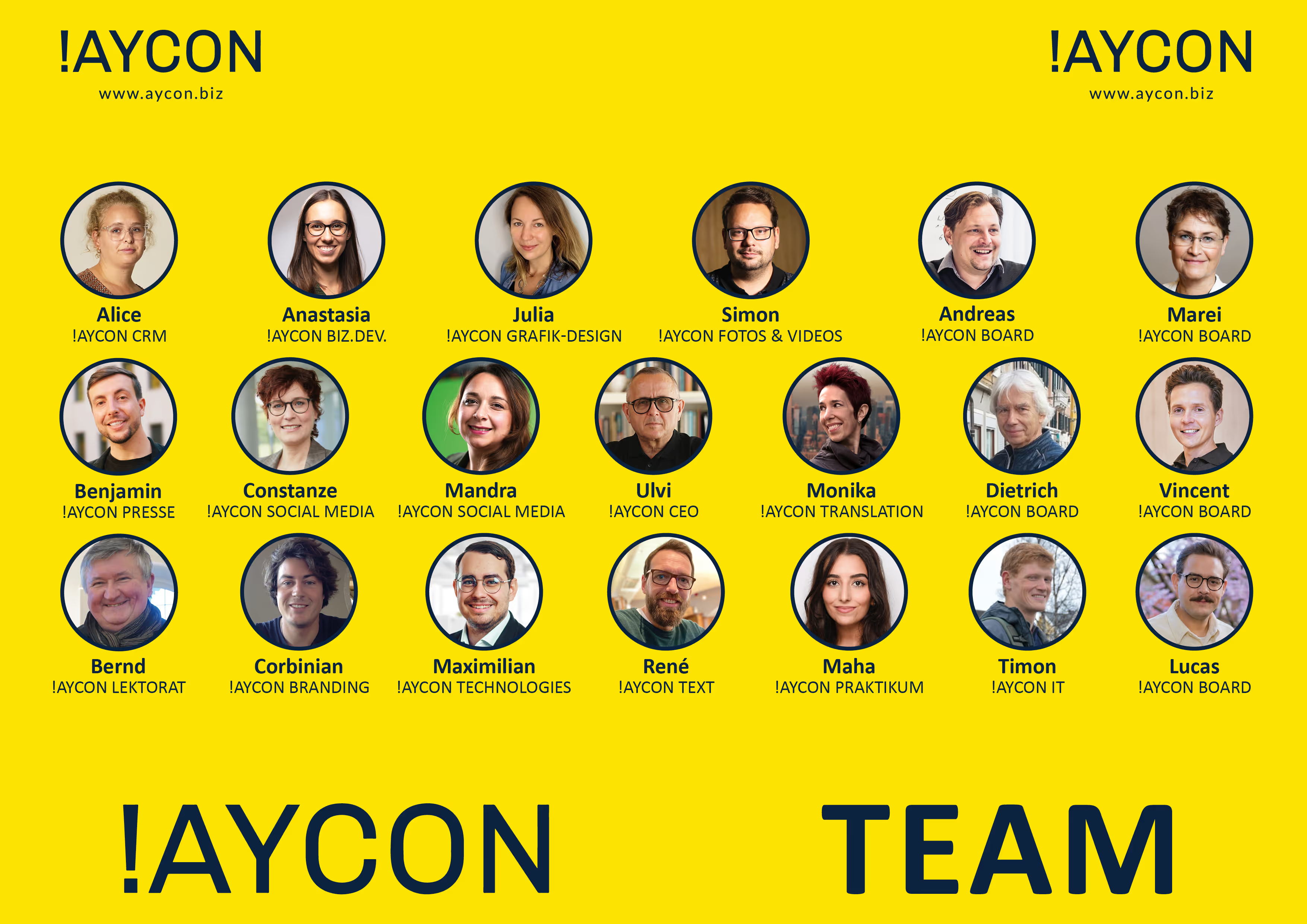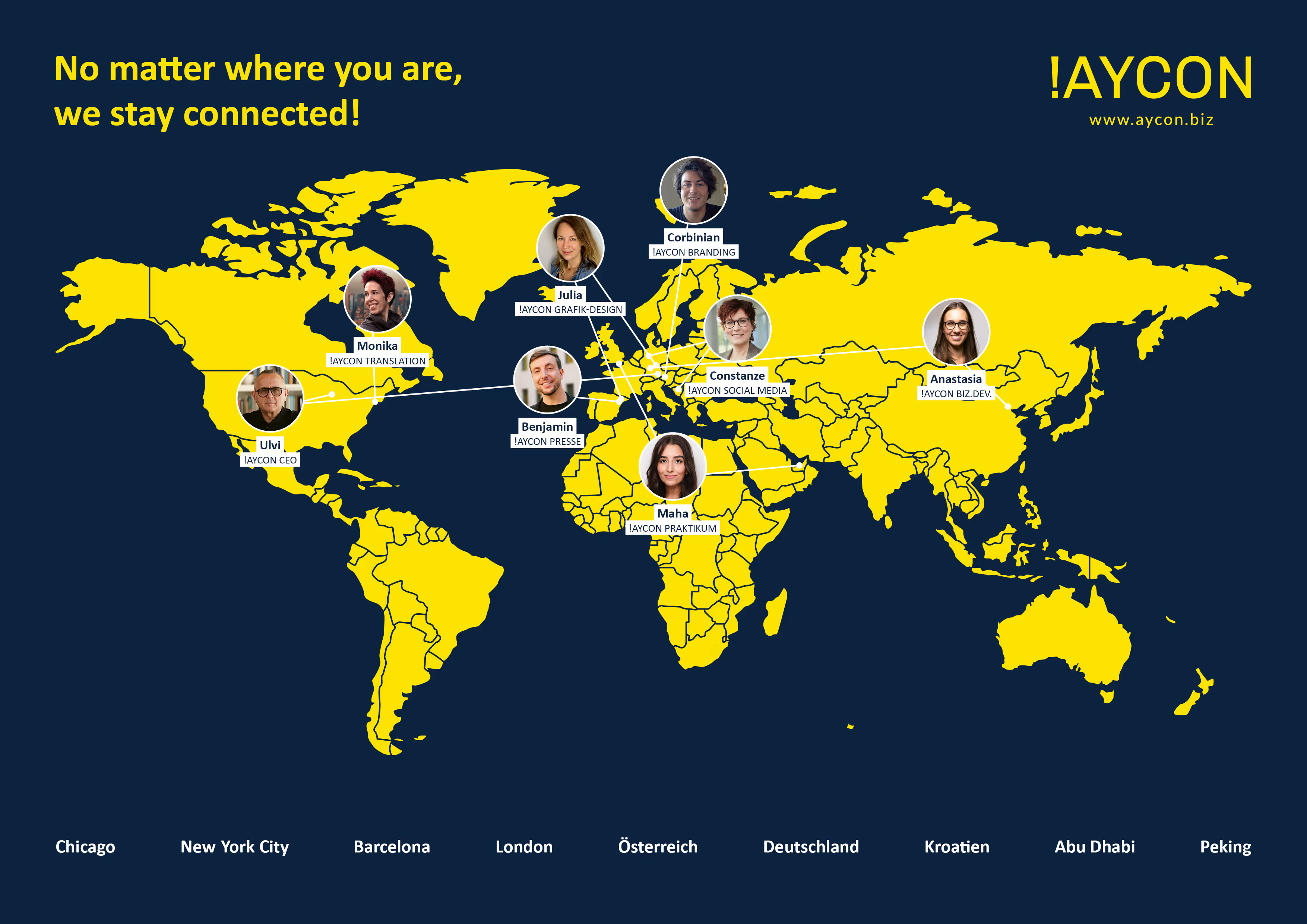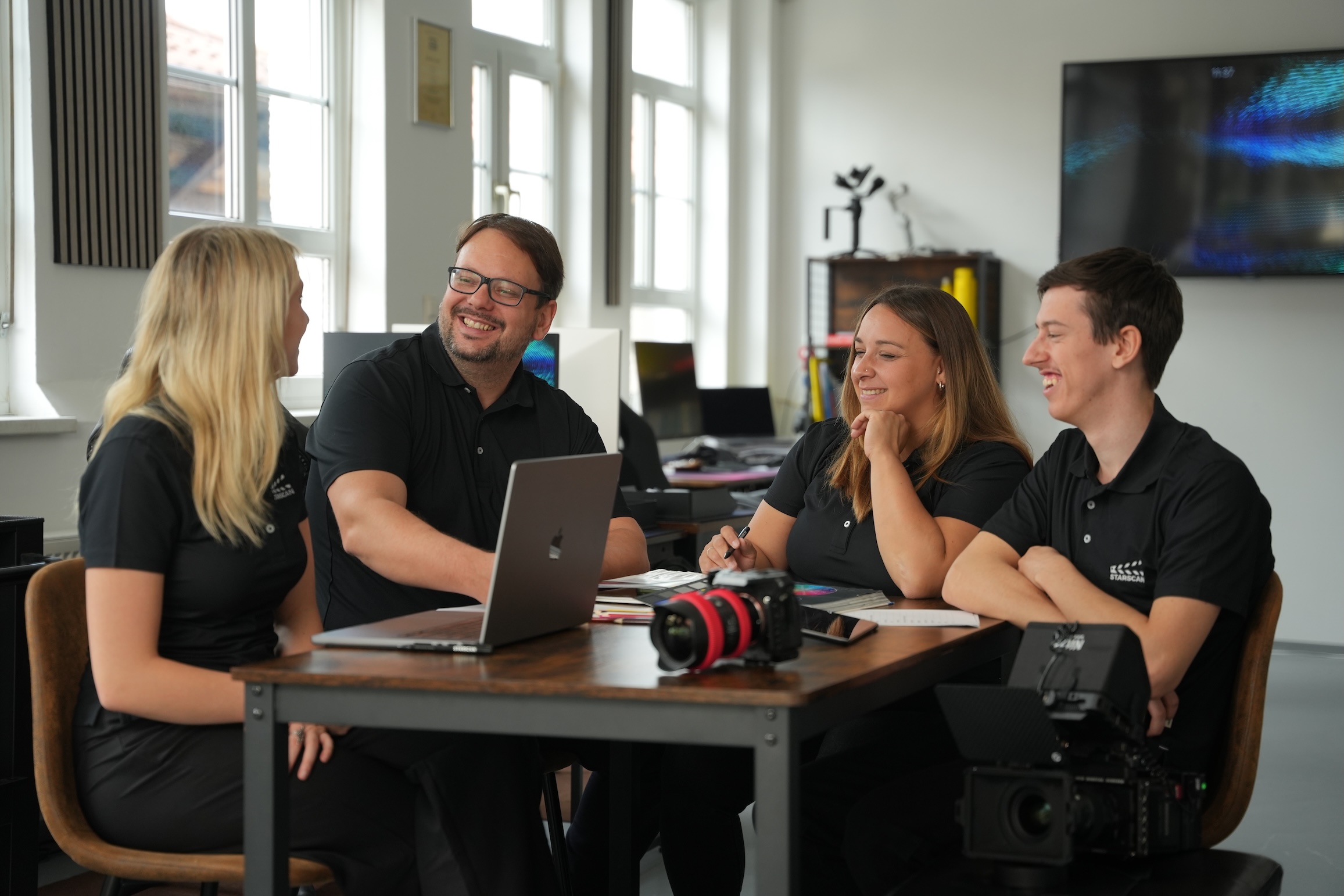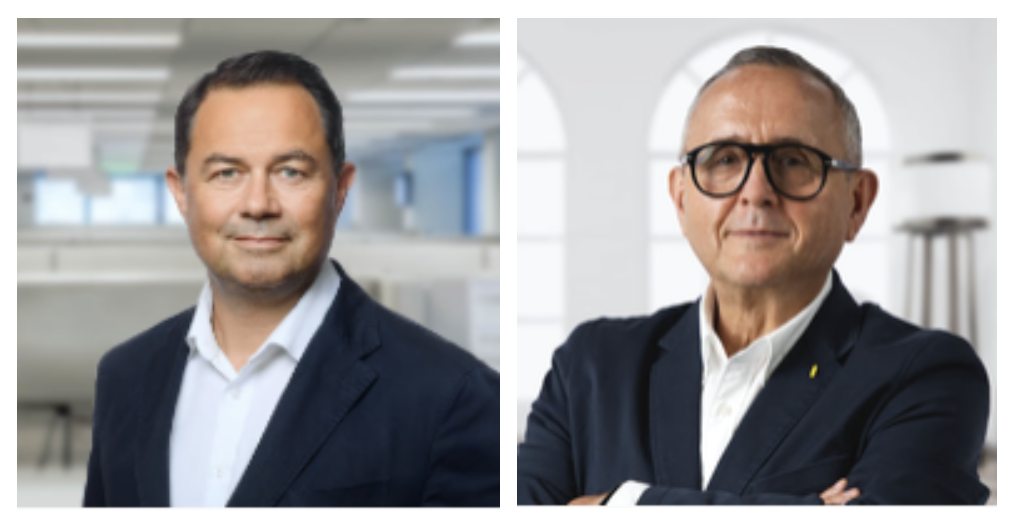
Expertentalk: Marktlage, XQI, Einschätzung, Ausblick (2026)MarktlageWie ist die Marktlage gerade wirklich – ist das Glas halbvoll oder halb leer?Die ehrlichste Antwort ist: Es kommt darauf an, in welchen Teilmarkt manschaut. Insgesamt ist es kein Boom-Markt, aber es ist auch kein Kollaps. Vieleempfinden die Stimmung schlechter als die Realität. Es gibt so eine Art„Windchill-Faktor“: Es fühlt sich kälter an, als es tatsächlich ist.Gleichzeitig war der Jahresstart weniger dynamisch als erhofft. Gerade imFinanzbereich gab es früher rund um Jahresabschluss, Closing und Reporting ofteinen spürbaren Nachfrageschub, der ist diesmal nicht in der gleichenIntensität gekommen. Das führt dazu, dass manche das Gefühl haben, es sei„nichts los“, obwohl in Wahrheit viele Projekte laufen, nur eben selektiver undmit längeren Zyklen.Woran merkt man, dass Entscheidungsprozesse heute anderslaufen als früher?Der Unterschied liegt weniger darin, dass Unternehmen keinen Bedarf hätten,sondern darin, wie sie entscheiden. Früher konnte es passieren, dass einVorstand zusammen mit einer Assistenz relativ schnell eine Entscheidung trifft.Heute läuft vieles durch Procurement, Einkauf, manchmal weitere Gremien, unddie Prozesse sind mühsamer und langsamer. Das verlängert die Time-to-Decisiondeutlich. Für Interim Manager bedeutet das: Man darf den Markt nicht am„Gefühl“ messen, sondern muss einplanen, dass Pitches, Freigaben undVertragswege länger dauern als früher.Kommt die Nachfrage eher aus Problemsituationen oder eheraus Wachstumsfeldern?Es ist wirklich beides. Es gibt Unternehmen, die in tiefen Problemsituationensind. Da geht es um Überleben, Stabilisierung, Liquidität, Restrukturierung.Gleichzeitig gibt es Scale-ups oder Infrastrukturthemen, wo Wachstum,Auslastung und Umsetzung im Vordergrund stehen. Das Bild ist nicht mehreindimensional. Manche Branchen stehen unter Druck, andere boomen. Und dieseZweiteilung prägt die Nachfrage stärker als früher.Welche Branchen und Themen sind gerade besonders schwierig?Es gibt Branchen, die sichtbar kämpfen, und Automotive ist ein gutes Beispiel.Dort entstehen Situationen, in denen sogar Zahlungen eng überwacht werden, undman spürt, wie hart die Lage in Teilen ist. Gleichzeitig darf man selbst insolchen Branchen nicht pauschal urteilen, weil es auch dort Teilbereiche gibt,die wieder besser laufen oder sich stabilisieren. Schwierigkeit bedeutet alsonicht „keine Projekte“, sondern oft „andere Projekte“: wenigerAusbringungsoptimierung wie früher, mehr Sanierung, Profitabilität, Struktur.Und wo entstehen gerade klare Chancen und Dynamik?Es gibt Segmente, die spürbar ziehen. Energie ist ein starkes Feld, auch mitsehr konkreten Engpässen: In bestimmten Bereichen, etwa rund umElektrifizierung und Stromversorgung, sind Lieferketten und Kapazitäten soausgelastet, dass die Pipeline für Jahre voll ist. Zusätzlich sieht man Dynamikin Cloud-Themen, Aviation, Defense und Robotik. Diese Segmente können auchandere Bereiche positiv mitziehen, weil sie Investitions- und Umsetzungsthemenerzeugen.Welche Rolle spielt KI in der Marktlage? Ist das nurBuzzword oder echte Nachfrage?Das wird zunehmend real. KI ist nicht nur ein „Trend“, sondern ein echterTransformations- und Effizienzhebel. Es geht darum, dass Unternehmen durch KIneue Möglichkeiten sehen, Prozesse anders zu bauen, Produktivität zu erhöhenund neue Change-Themen anzustoßen. Es wurde auch darüber gesprochen, dass KI ingroßen Volkswirtschaften wie den USA potenziell einen messbaren Wachstumseffekterzeugen kann. Wichtig ist weniger die exakte Zahl, sondern die Richtung: Esentsteht viel Veränderungsdruck und viele neue Aufgaben, die Unternehmen internnicht vollständig abdecken können. Genau daraus entstehen Mandate.Wenn viele sagen „der Markt ist schlecht“ – stimmt dasdann?So pauschal stimmt das nicht. Es gibt Indikatoren, die dagegen sprechen: ZumBeispiel gibt es Suchen für große, anspruchsvolle Rollen, bei denen die„Top-Leute“, an die man zuerst denkt, alle im Projekt sind. Das allein zeigt:Es ist nicht so, dass der Markt am Boden liegt. Was sich verändert hat, ist dieVerteilung und die Geschwindigkeit. Wer in den falschen Segmenten ist oderunklar positioniert, spürt die Lage härter. Wer in den richtigen Themen sitzt,kann sehr gut ausgelastet sein.Wie lange laufen Projekte heute – gibt es mehr Langläufer?Ja, es gibt Projekte, die deutlich länger laufen, als man klassisch mit„Interim“ verbindet. Es gibt Beispiele von Rollen, die über ein Jahr laufen,etwa in CIO-Kontexten. Das sind nicht unbedingt „immer genau dieselbenAufgaben“, aber es zeigt: Wenn jemand gut andockt und die Organisation ständigneue Themen hat, werden Mandate verlängert und können sehr stabil werden. Fürden Markt ist das ein Stabilitätsfaktor, weil es Auslastung sichert.XQIWas ist XQI genau – und warum diese Neuausrichtung?XQI ist im Kern die strategische Antwort auf Marktveränderungen. DieAnforderungen im Interim-Markt haben sich weiterentwickelt: mehr Player, mehrWettbewerb, andere Best Practices, schnellere Innovationsnotwendigkeit. Es gabden Wunsch, sich stärker auf Executive Interim zu fokussieren und BestPractices umzusetzen, die in einem stärker Executive-Search-geprägten Umfeldnicht immer priorisiert werden. Das Ergebnis ist keine „neue Firma“ im Sinn von„alles neu“, sondern eine Umformierung mit dem bestehenden Team, mit dem Ziel,freier investieren, schneller handeln und Interim konsequenter weiterentwickelnzu können.Was ist die übergeordnete Vision dahinter?Die Vision ist, im Premium Executive Interim Segment ein absolut relevanterPlayer zu sein und gleichzeitig eine der besten Reputationen im Marktaufzubauen, so, dass sowohl Interim Executives als auch Kunden sagen: Mit denenwill ich arbeiten. Das ist bewusst nicht der Ansatz „wir machen alles fürjeden“, sondern ein klares Qualitäts- und Level-Verständnis: Fokus auf ersteund zweite Führungsebene, Transformation, Restrukturierung,Post-Merger-Integration und ähnliche Schwerpunkte – und eben nicht dasklassische Low-Budget-Staffing.Warum ist dieser Netzwerk-Ansatz so zentral?Weil Persönlichkeit in Executive Interim entscheidend ist. Es gibt Situationen,in denen nicht das perfekte „LucaNet im Maschinenbau mit exakt 77 MioUmsatz“-Profil den Ausschlag gibt, sondern ob jemand als Persönlichkeit, alsChange-Leader und als Führungstyp in die Organisation passt. Und das kann mannur beurteilen, wenn man Menschen wirklich kennt. Dreimal im Jahr telefonierenreicht dafür nicht. Deshalb setzt XQI stark auf einen netzwerkorientiertenAnsatz, in dem es einen selektiven Kreis gibt, der nicht unendlich wächst,sondern überschaubar bleibt und genau diese Nähe ermöglicht.Wie passt das zur Marktentwicklung, dass es immer mehrInterim Manager gibt?Gerade deshalb ist es wichtig. Wenn es mehr Angebot gibt, wird der Markthärter, und Qualität, Passung und Vertrauen werden wichtiger. Ein selektivesNetzwerk und eine klare Positionierung helfen, nicht im Massenmarktunterzugehen, sondern im Premium-Segment Mehrwert zu liefern – für Kunden undManager.EinschätzungWenn man die Lage insgesamt bewertet: Was sind diewichtigsten Veränderungen verglichen mit „vor zehn Jahren“?Ein zentraler Unterschied ist die Marktdichte. Früher gab es wenigerMarktteilnehmer, weniger Provider-Dynamik, weniger Plattformlogik. Heute gibtes deutlich mehr Menschen, die Interim machen oder damit in Kontakt sind, unddadurch entstehen auch mehr Besetzungen aus unterschiedlichen Richtungen. VieleFührungskräfte kennen heute jemanden im Interim-Markt. In einer Phase, in derviele auf Job-Suche sind oder sich neu orientieren, führt das dazu, dassPositionen nicht mehr „nur“ über wenige große Provider laufen, sondern ausvielen Kanälen.Heißt das, der Wettbewerb steigt automatisch?Ja, der Wettbewerb steigt. Gleichzeitig wächst der Gesamtmarkt auch, weil jedeneue Person im Interim-Markt wieder ein eigenes Netzwerk und neue Zugängemitbringt. Man muss beides sehen: mehr Konkurrenz, aber auch mehr Gesamtvolumenund mehr Wege.Was bedeutet das für Provider – verändert sich auch derenWelt?Absolut. Auch die Provider-Landschaft ist in Bewegung. Es gibt mehrPrivate-Equity-Geld in der Branche, weil der Markt als attraktiv wahrgenommenwird. Das erzeugt Wachstumsdruck, der nicht automatisch positiv ist, weilWachstum auch zu falschen Entscheidungen führen kann. Dazu kommenNachfolgethemen, Fluktuation, Gesellschafterstrukturen und Zielkonflikte, zumBeispiel zwischen Personalberatung/Executive Search und Interim, weil beidesehr unterschiedliche Kulturen und Geschwindigkeiten haben. Und man sieht, dassnicht nur ein Unternehmen sich aus solchen Strukturen herausgelöst hat.Wie haben sich Vertragsmodelle verändert – und warum istdas relevant?Früher war vieles stärker standardisiert. Heute gibt es sehr unterschiedlicheModelle: Sozietäten, bei denen Projekte über die Sozietät laufen müssen;Konstruktionen mit zusätzlichen Lizenzgebühren; Fälle, in denenManager-Überlassung nötig ist; Konstellationen, in denen mehrere Margenübereinanderliegen und es für Kunden sehr teuer wird. Das ist relevant, weil eszeigt: Der Markt ist komplexer geworden, und man muss genau wissen, was manunterschreibt. Auch aus Manager-Sicht ist das zentral, weil Lizenzen, Margenund Haftungsfragen die eigene wirtschaftliche Realität stark beeinflussenkönnen.Wie sollte man als Interim Manager damit umgehen – eherbreit streuen oder fokussieren?Fokussieren. Die Empfehlung ist klar: nicht die Gießkanne, nicht an „alle“.Sinnvoller ist, sich strategisch zu überlegen, mit welchen Partnern manzusammenarbeiten will und wer die Multiplikatoren sind, die einen wirklichkennen sollen. Es geht nicht darum, auf sieben Plattformen zu hoffen, dasseinen jemand findet, wenn ein bestimmtes Tool und eine bestimmte Branchegesucht werden. Entscheidend sind ein paar wenige Menschen, die einen alsPerson einschätzen können: Wie führt man, wie tickt man, wofür ist man wirklichder Richtige?Was sind typische Kriterien, nach denen entschieden wird,ob jemand überhaupt passt?Es geht um Level, um eine nachweislich erfolgreiche Management-Laufbahn und umeine gewisse Stringenz. Wenn jemand vorher nie wirklich erfolgreich in einerFührungsrolle war, ist der Schritt ins Interim oft zu früh. Auch Branchennähekann eine Rolle spielen – nicht weil man nie wechseln darf, sondern weil einProvider nicht in jedem Markt gleich stark ist. Und schließlich zählt einegewisse Klarheit: Wenn jemand sehr sprunghaft zwischen Rollen und Identitätenwechselt, wird es schwerer, ihn sauber zu positionieren.Wie wichtig sind „weiche Faktoren“ wie Persönlichkeit undKommunikation?Extrem wichtig. Klarheit, Verlässlichkeit, Leadership, Zuhören – das sind keineNebensachen, sondern entscheidend fürs Andocken. Gerade weil Interim oft inChange-Situationen stattfindet, sind Führung, Kommunikation undVertrauensfähigkeit zentral. Und genau deshalb ist „Personality Fit“ oftwichtiger als Produktkenntnis. Es gab sogar das konkrete Beispiel: jemand kannfachlich das Produkt nicht kennen, aber die Organisation braucht die Erfahrungund die Führungskompetenz und genau dann funktioniert ein Wechsel in eine neueBranche.Ist ein Branchenwechsel heute schwieriger geworden – odergeht das noch?Es geht noch, aber es hängt stärker vom Zugang ab. In manchen Branchen ist estraditionell schwer, externe Leute reinzubekommen (Automotive wird als Beispielgenannt). Branchenwechsel funktionieren vor allem dann, wenn der Kunde sehr gutbekannt ist, der Fit wirklich verstanden wird und man nicht in einem anonymenPitch mit fünf Kandidaten „irgendwie“ mithalten muss. Je besser der Kunde unddie Situation verstanden sind, desto eher wird auch ein mutiger Branchenmovemöglich.Wie wichtig ist die Online-Präsenz – Website, LinkedIn, CV?LinkedIn wird als sehr wichtig gesehen, weil dort der professionelle Eindruckentsteht. Eine Website ist nicht zwingend Pflicht, kann aber sinnvoll sein –gerade als Unternehmer-Statement und im Kontext Scheinselbstständigkeit. BeimLebenslauf gilt: lieber umfassend als zu kurz, aber klar geführt, mit einersauberen Struktur. Oben sollte sofort stehen, wofür man steht, welche Rollen,welche Branchen, welche Größenordnungen und dann idealerweise die neuestenProjekte zuerst.Wie wichtig sind Zeugnisse und Referenzen?Sehr wichtig. Erstens, weil es Menschen gibt, die Lebensläufe„uminterpretieren“, und deshalb prüfen professionelle Anbieter auchPlausibilität, Abschlüsse, Nachweise. Zweitens, weil Referenzen den digitalenEindruck massiv beeinflussen: Wenn jemand gegoogelt wird und es gibtglaubwürdige Testimonials, stärkt das Vertrauen. Und es hilft nicht nur beim„Ja“, sondern auch dabei, dass jemand besser einschätzen kann, ob der Fitpasst.Und jetzt die Sache, über die alle reden, aber seltenoffen: Tagessätze – was ist realistisch?Es gibt nicht den einen Tagessatz. Bei standardisierten Rollen sind Sätze eherunter Druck. Gleichzeitig gab es in den letzten zehn Jahren insgesamt eindeutliches Wachstum. Die frühere „Grenze“ bei 2.000 Euro ist in vielenSituationen nicht mehr die Obergrenze. Entscheidend ist der Kontext: Wiekomplex ist das Projekt, wie groß ist der Hebel, welche Wertschöpfung entsteht,welches Zeitfenster gibt es? In Private-Equity-Kontexten mit klarerEBITDA-Logik ist der Wertbeitrag oft sehr gut argumentierbar. Gleichzeitiggilt: Weder Manager noch Provider sollten versuchen, alles bis zum Maximumauszureizen, weil das häufig langfristig schadet. Wenn der Satz zu aggressivist, wird der Kunde bei der ersten Gelegenheit beenden. Ein offener Dialogführt meist zu einer Lösung, die für beide funktioniert. AusblickWas ist die realistische Erwartung für 2026 – wird esbesser oder schlechter?Es wird vermutlich nicht „das beste Jahr aller Zeiten“, aber es wird weiterhinattraktiv bleiben. Dass neue Player in den Markt gehen, zeigt: Es kann nichtvöllig unattraktiv sein. Gleichzeitig steigt der Konkurrenzdruck, und das wirdzu Bereinigungen führen, auch bei Providern. Es gibt Namen, die heute großwirken, die aber in fünf Jahren vielleicht nicht mehr als Top-Player geltenwerden. Der Markt wird professioneller, härter und selektiver.Welche Themen werden 2026 besonders treiben?Effizienzsteigerung und Change-Themen werden weiter zunehmen, auch weil KI neueMöglichkeiten schafft und Unternehmen diese Transformation nicht komplettintern stemmen können. Gleichzeitig wird es Wachstumsfelder geben, die durchinternationale Dynamik beeinflusst werden, etwa USA und China. Selbst wennEuropa in Teilen schwächelt, ziehen diese Märkte global mit, und das wirktindirekt auch auf europäische Projekte. Internationale Projekte werdenweiterhin relevant bleiben, oft aus dem DACH-Raum heraus oder in angrenzendenMärkten.Was sind die wichtigsten Takeaways, die man als InterimManager wirklich ernst nehmen sollte?Erstens: Der Markt ist volatil, aber nicht so schlecht, wie er sich anfühlt.Zweitens: Nachfrage entsteht sowohl aus Problemsituationen als auch ausWachstumsfeldern. Drittens: Entscheidungsprozesse dauern länger, man mussGeduld und Pipeline-Management haben. Viertens: Positionierung ist keinMarketing-Gag, sondern Überlebensmechanik – man muss wissen, in welchemTeilmarkt man spielt und welche Multiplikatoren einen kennen sollen.Und alsübergreifendes Schlusswort: Interim sollte man nicht halbherzig betreiben. Wersagt „ich mach das mal bis ich was Festes habe“, unterschätzt den Markt. Ineinem Umfeld, das härter und selektiver wird, gewinnt nicht der, der irgendwieverfügbar ist, sondern der, der klar steht, sichtbar ist, Vertrauen erzeugt unddas Ganze als unternehmerisches Spiel ernst nimmt.
*
Minuten
